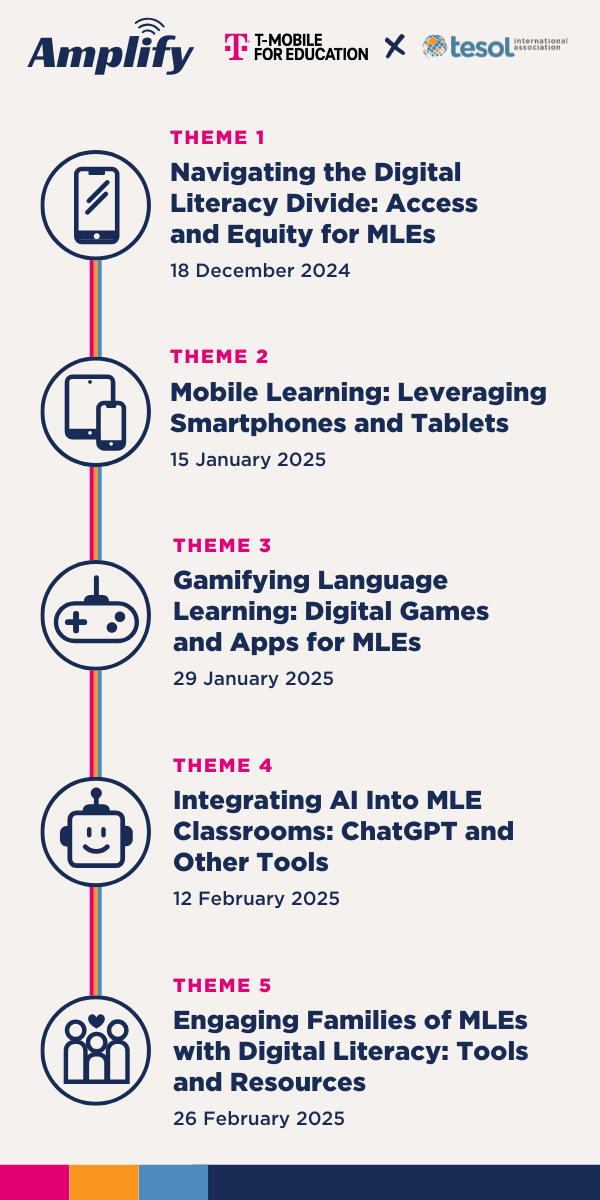Live workshop: 18 December 2024, 7pm ET
Meet the Presenters:
 |
Dr. Amy Jackson, Senior Manager, Educational Technology - Learning PartnershipsDr. Amy L. Jackson, Ed.D., is a visionary leader blending equity, education, and technology, advocating for marginalized communities, fostering transformative learning, and championing all forms of literacy as a pathway to opportunity. |
 |
Bob Huu Nguyen, MA TESOL, English Language Program AlumniBob Huu Nguyen is an innovative international TESOL educator and trainer who has taught in the U.S., Japan, Ethiopia, and Türkiye with a passion for culturally responsive teaching and technology-driven learning for diverse learners.
|
- Accessibility and Equity: Address the challenges of the digital divide and discuss strategies to ensure equitable access to digital literacy tools for all MLEs.
- Digital Literacy Skills: Explore essential digital literacy skills for MLEs, such as critical thinking, information evaluation, and digital communication.
- Bridging the Gap: Share effective strategies for bridging the digital divide, including partnerships with community organizations and technology providers.
Extension activity due: 10 January 2025
Online asynchronous discussion: Ongoing











